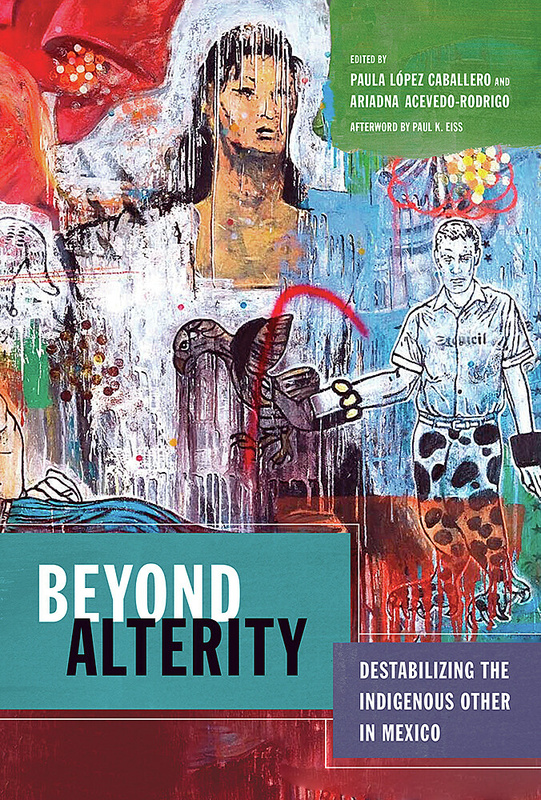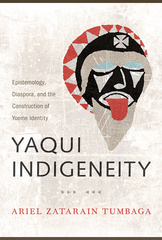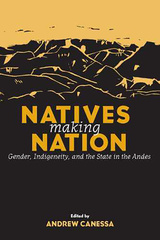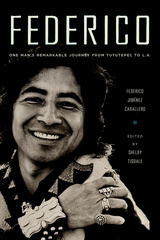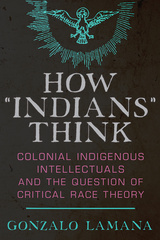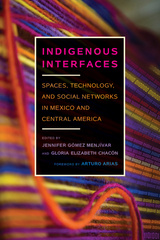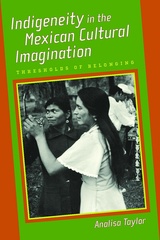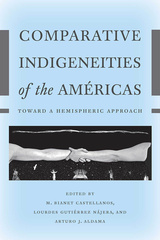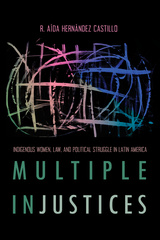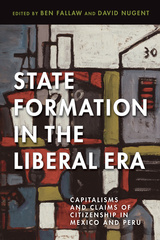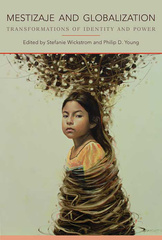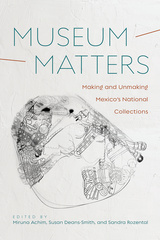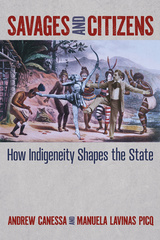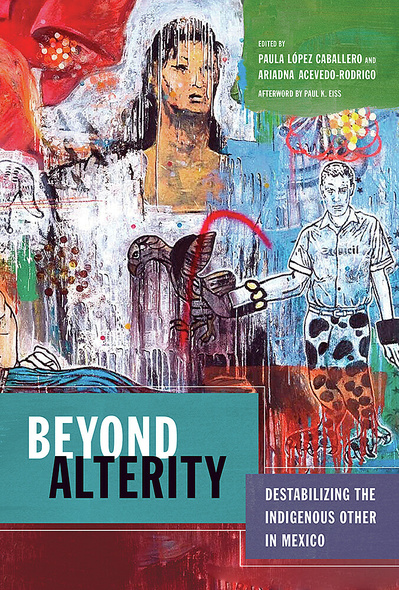
320 pages, 6 x 9
2 b&w illustrations, 2 tables
Hardcover
Release Date:17 Apr 2018
ISBN:9780816535460
Beyond Alterity
Destabilizing the Indigenous Other in Mexico
The University of Arizona Press
The concept of “indigenous” has been entwined with notions of exoticism and alterity throughout Mexico’s history. In Beyond Alterity, authors from across disciplines question the persistent association between indigenous people and radical difference, and demonstrate that alterity is often the product of specific political contexts.
Although previous studies have usually focused on the most visible aspects of differences—cosmovision, language, customs, resistance—the contributors to this volume show that emphasizing difference prevents researchers from seeing all the social phenomena where alterity is not obvious. Those phenomena are equally or even more constitutive of social life and include property relations (especially individual or private ones), participation in national projects, and the use of national languages.
The category of “indigenous” has commonly been used as if it were an objective term referring to an already given social subject. Beyond Alterity shows how this usage overlooks the fact that the social markers of differentiation (language, race or ethnic group, phenotype) are historical and therefore unstable. In opposition to any reification of geographical, cultural, or social boundaries, this volume shows that people who (self-)identify as indigenous share a multitude of practices with the rest of society and that the association between indigenous identification and alterity is the product of a specific political history.
Beyond Alterity is essential reading for anyone interested in understanding indigenous identity, race, and Mexican history and politics.
Contributors
Ariadna Acevedo-Rodrigo
Laura Cházaro
Michael T. Ducey
Paul K. Eiss
José Luis Escalona-Victoria
Vivette García Deister
Peter Guardino
Emilio Kourí
Paula López Caballero
Elsie Rockwell
Diana Lynn Schwartz
Gabriela Torres-Mazuera
Although previous studies have usually focused on the most visible aspects of differences—cosmovision, language, customs, resistance—the contributors to this volume show that emphasizing difference prevents researchers from seeing all the social phenomena where alterity is not obvious. Those phenomena are equally or even more constitutive of social life and include property relations (especially individual or private ones), participation in national projects, and the use of national languages.
The category of “indigenous” has commonly been used as if it were an objective term referring to an already given social subject. Beyond Alterity shows how this usage overlooks the fact that the social markers of differentiation (language, race or ethnic group, phenotype) are historical and therefore unstable. In opposition to any reification of geographical, cultural, or social boundaries, this volume shows that people who (self-)identify as indigenous share a multitude of practices with the rest of society and that the association between indigenous identification and alterity is the product of a specific political history.
Beyond Alterity is essential reading for anyone interested in understanding indigenous identity, race, and Mexican history and politics.
Contributors
Ariadna Acevedo-Rodrigo
Laura Cházaro
Michael T. Ducey
Paul K. Eiss
José Luis Escalona-Victoria
Vivette García Deister
Peter Guardino
Emilio Kourí
Paula López Caballero
Elsie Rockwell
Diana Lynn Schwartz
Gabriela Torres-Mazuera
Beyond Alterity holds a mirror up to scholars and policy-makers, provoking us all to reflect on how we project deep-seated values and assumptions onto our objects of study, especially when they are people who work the land in regions far removed from educational, administrative, and economic centers.'—Yanna Yannakakis, Legal History
‘A bold contribution to the study of indigenous alterity, focusing on discontinuities and contingencies in how indigenous people have been understood and imagined in Mexico since the conquest. These provocative essays demonstrate again and again how indigenous people have always existed in a dynamic world where identity is contextualized and contested in every possible dimension.’—Andrew Canessa, author of Intimate Indigeneities: Race, Sex, and History in the Small Spaces of Andean Life
Paula López Caballero is a researcher at CEIICH-UNAM and has worked at the CNRS and Sciences Po (France). Her previous publications include Indígenas de la nación. Etnografía histórica de la alteridad en México (Milpa Alta, siglos XVII–XXI), and Les Indiens et la nation au Mexique: Une dimension historique de l’altérité. Ariadna Acevedo-Rodrigo is an assistant professor of history at the Center for Advanced Research and Studies (CINVESTAV-IPN) in Mexico City. She is the co-author of Ciudadanos inesperados: Espacios de formación de la ciudadanía ayer y hoy.
Introduction: Why Beyond Alterity?
Paula López Caballero with Ariadna Acevedo-Rodrigo
PART I. LAND AND GOVERNMENT
1. The Practices of Communal Landholding: Indian Pueblo Property Relations in Colonial Mexico
Emilio Kourí
2. Connected Communities: Villagers and Wider Social Systems in the Late Colonial and Early National Periods
Peter Guardino
3. Indigenous Communities, Political Transformations, and Mexico’s War of Independence in the Gulf Coast Region
Michael T. Ducey
4. Happy Together? “Indians,” Liberalism, and Schools in the Oaxaca and Puebla Sierras, 1876–1911
Ariadna Acevedo-Rodrigo
5. Todos tenemos la crisma de dios: Engaging Spanish Literacy in a Tlaxcalan Pueblo
Elsie Rockwell
6. Communal and Indigenous Landholding in Contemporary Yucatan: Tracing the Changing Property Relations in the Postrevolutionary Ejido
Gabriela Torres-Mazuera
PART II. SCIENCE
7. From Anatomical Collection to National Museum, circa 1895: How Skulls and Female Pelvises Began to Speak the Language of Mexican National History
Laura Cházaro
8. Anthropological Debates Around the Indigenous Subject and Alterity, 1940–1948
Paula López Caballero
9. Displacement, Development, and the Creation of a Modern Indígena in the Papaloapan, 1940s–1970s
Diana Lynn Schwartz
10. Encapsulated History: Evon Vogt and the Anthropological Making of the Maya
José Luis Escalona Victoria
11. In Sickness and in Myth: Genetic Avatars of Indigenous Alterity and the Mexican Nation
Vivette García Deister
Epilogue: Beyond Alterity, Beyond Occidentalism: “Indigenous Other” and “Western Self ” in Mexico
Paul K. Eiss
Contributors
Index

